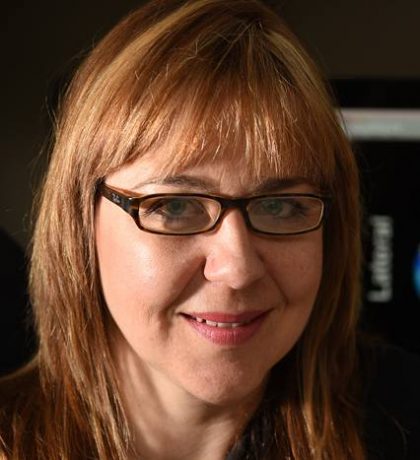In remaining time before Christmas, we love to tell stories of faith, courage, and of miracles. And when the belief of a compatriot in a brave dream is involved, then those stories leave millions of invisible traces.
 Dr. Liana Apostolova started studying medicine for the sole purpose of studying the human brain in the best scientific environment possible. She also covered the U.S. requirements to make the exams she took in the Medical University in Sofia equivalent to the American ones. That is how in 1998 with a diploma in hand, she arrived in the United States and today she is a professor of neurology, radiology and genetics at the Indiana University Medical School, Illinois. Dr. Liana Apostolova is the one to head the first major project for early diagnosis of Alzheimer’s disease in the US, totaling 45 million dollars.
Dr. Liana Apostolova started studying medicine for the sole purpose of studying the human brain in the best scientific environment possible. She also covered the U.S. requirements to make the exams she took in the Medical University in Sofia equivalent to the American ones. That is how in 1998 with a diploma in hand, she arrived in the United States and today she is a professor of neurology, radiology and genetics at the Indiana University Medical School, Illinois. Dr. Liana Apostolova is the one to head the first major project for early diagnosis of Alzheimer’s disease in the US, totaling 45 million dollars.
“The research program is going to include 17 institutions and 14 clinical centers and with their help we will study this rare form of Alzheimer, which affects the middle-aged people,” the doctor says. “It is rare for a patient to be in their 40s or 50s when they are working and raising their children but, unfortunately, such Alzheimer’s patients exist and they have a more aggressive form of the disease.”
Five percent of all Alzheimer’s patients suffer from an earlier age, but no one has ever explored the reasons behind this. These patients, however, can help in finding treatment for the disease – they are suitable for clinical research because they do not have other diseases that affect brain function.
“I think a drug for Alzheimer’s will be found, but it would take some time,” Dr. Apostolova says. “We currently have a pretty promising drug, but the final results for it will come out in about three years. Some time ago, we tested a vaccine during the more advanced stage of dementia. The vaccine removes the protein that caused the disease. However, it produced side effects. Still, this may be an approach – knowing which people have a higher risk of developing the disease, and a vaccine that stops the production of this protein in the brain.”
Victories over lethal chronic illnesses increase life expectancy and so the number of Alzheimer’s patients has been growing. Their situation is not optimistic at all – many of the affected people are not diagnosed and nihilism is widespread among doctors, according to Dr. Liana Apostolova, who has recently taken part in the International Alzheimer’s Congress in Varna.
“Doctors avoid doing diagnostic work and believe that there is no point in diagnosing Alzheimer’s as no treatment exists,” Dr. Apostolova told us. “The point, however, is that the patient should be diagnosed at an early stage when he or she has just memory impairment and their family can prepare for what is to come, rather than doing everything at the last moment and in critical situations. In addition to that the medication is provided after submitting a number of documents, which are examined by a committee and this process is repeated each month. How could people fill in and submit these documents if they lose their ability to get things organized and start forgetting. Moreover, the social system to support relatives and to care for people with Alzheimer’s does not exist. So, there’s a lot that remains to be done. Probably, a government plan related to the disease needs to be created, the way it is in the US and developed European countries. It contains not only programs for early diagnosis and therapy but a social program, too.”
Dr. Liana Apostolova believes that the American dream is alive. She is an example of this, as she used to be a girl with medical education from Eastern Europe, having great dreams and now she is the head of the second largest Alzheimer’s clinical trial in the United States. How did she do it? With a lot of hard work, she answers.
Source: www.bnr.bg
.





